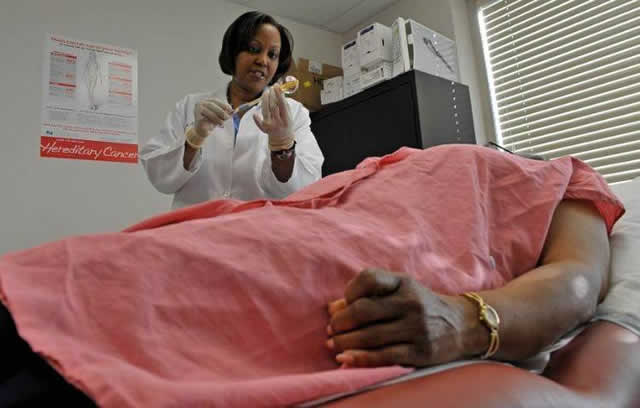
The Sunday Mail

Nearly 2 000 Zimbabweans die of cancer yearly and 81 percent of them would have sought treatment long after the less life-threatening stages of their illness, latest research shows.
A number of cancers can be cured if detected early, but many patients approach doctors late, subsequently falling victim to a general culture of dodging regular medical check-ups.
Experts recommend that all adults visit healthcare providers periodically for disease screening, future medical risk assessment, healthy lifestyle advice and vaccination updates.
Only a fraction of Zimbabwe’s population appears to have embraced this, with the remainder intent on entering the door to a medical institution only when they are sick.
As a result, a good number of people have inadvertently nurtured diseases that eventually gobble them.
To top it all, cancer education programmes have not been as aggressive as HIV/Aids initiatives that have seen the HIV prevalence rate declining significantly.
The latest Zimbabwe National Cancer Registry shows cancer deaths increased from 1 556 in 2012 to 2 062 in 2013.
The disease’s incidence also shot up from 6 107 to 6 548 during that period, with cervical and prostate cancer topping the list.
Women accounted for 1 111 deaths and men 951.
Eight percent of deaths resulted from Kaposi Sarcoma and seven percent Non-Hodgkin’s Lymphoma, while breast cancer contributed seven percent, oesophagus six percent, liver six percent, lung five percent and colo-rectal four percent.
Cancer Association of Zimbabwe monitoring and evaluation officer Mr Lovemore Makurirofa attributed these figures to lack of early screening and treatment.
He implored Government to invest in prevention and to introduce high-impact awareness programmes.
“Many people become adamant when it comes to issues regarding their reproductive health. Most of the time, they ignore early signs of cancers, only visiting the hospital when the cancers are at advanced stages.
“About 81 percent of all cancers recorded in Zimbabwe are diagnosed at advanced stages. Cervical cancer is preventable and treatable if detected early as it takes about 10 years for prostate and cervical cancers to progress to Stage One.”
He added: “Cancer services aren’t readily available in Zimbabwe. We still have a long way to go, and there is no sustainable cancer fundraising.
“Even the enunciated cancer fund is still to get off the ground.
“If Government invests in prevention by running awareness campaigns on healthy living and the signs and symptoms of cancers, we can be able to cut down cases. Decentralising cancer services is also a key factor that can assist Zimbabwe to lift the burden of expensive treatment.
“Statistics recorded by the Cancer Registry are not necessarily a true reflection of the new cancer cases as some people aren’t accessing cancer services due to the distance they have to travel and the high costs associated with seeking treatment. (The figures could be higher.)”
Cancer results from an uncontrolled division of abnormal cells in a section of the body. The one that occurs in the cervix is mainly caused by the human papilloma virus which is transmitted sexually.
Advanced cervical cancer may cause abnormal vaginal bleeding or discharge.
Prostate cancer risk factors include age, genetics and, sometimes, race, and the symptoms are weak/interrupted urine flow, pain/burning sensation during urination, bloody urine or semen and back pains, among others.
Zimbabweans of all races are generally afflicted by cervical cancer (18 percent), Kaposi Sarcoma (10 percent), breast and prostate cancers (seven percent each), Non-Hodgkin Lymphoma and non melamona skin cancer (six percent each), oesophagus and colo-rectal cancers (four percent each) and eye cancer (three percent). High medical costs have seen many Zimbabweans fail to go through full treatment cycles.
A survey conducted by The Sunday Mail last week revealed that radiotherapy costs US$3 000-US$4 000 per session (less than an hour) while chemotherapy demands US$100-US$41 000 per cycle, depending on the cancer type and stage.
With only 1, 6 million people in Zimbabwe on medical aid, such treatment has been beyond the reach of many.



